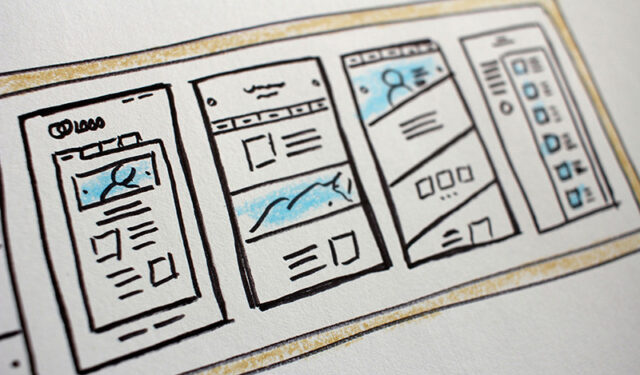The dissemination of dubious quality research is a problem that is increasingly worrying scientific journals editors. The various cases during the covid-19 pandemic have put the problem on everyone’s radar. The need to discuss this issue is becoming more and more pressing. … Read More →
Indigenous Scientific Output: Indigenous Languages and Ethnic Self-Identification in Institutional Repositories
UFSCar is implementing an innovative initiative by including the ethnicity field/indigenous people in the Institutional Repository’s metadata, valuing original authorship in scientific output. In addition to this new field, the title, keywords, and abstract metadata also encourage the use of indigenous languages by student researchers, thus contributing to the construction of a science that is more committed to epistemic justice and to Brazil’s cultural and linguistic diversity … Read More →
Research Integrity and Human Agency in Research Intertwined with Generative AI
Scholarly communication is amid a reconfiguration that, from a conservative perspective, should be as paradigm-shifting as the creation of the first scientific journal Philosophical Transactions, in 1665. From a more disruptive perspective, this transformation will reshape the entire scientific culture, redefining the autonomy of researchers and institutions in producing and validating knowledge. Sustaining research integrity and rigor in projects and publications calls for strategies extending beyond transparency policies for researchers using Generative Artificial Intelligence. … Read More →
International Metrics Make Latin American Urban Journals Invisible
Study shows how global scientific evaluation criteria put urban journals from the Global South at a disavantage, reinforcing epistemic inequality in the production and circulation of knowledge. As an alternative, databases such as SciELO and Redalyc have proven to be auspicious in increasing the visibility and recognition of local scientific production. … Read More →
Global Science in Danger
The current American government is curtailing science in several ways. Certain terms are censored in scientific reports and publications, communications and collaborations between scientists are limited or even proscribed, and funding is withdrawn. The implications for scientific research in the US are vast, but the long arm of the American government has undesired effects on the global science community as well, particularly on the numerous ways scientists elsewhere collaborate with their American colleagues. The preeminence of American science seems truly being shattered. … Read More →
Brazilian researchers launch Guidelines for the ethical and responsible use of Generative Artificial Intelligence (GenAI)
Brazilian researchers have launched a guide to the ethical and responsible use of generative AI in research integrating normative principles and practical examples to promote transparency, human authorship, and protection of unpublished or sensitive data, as well as care for academic integrity and bias in different uses in academic research. … Read More →
Open Science is still an incipient topic in Business Administration journals
Although valuable, the Open Science movement is still extremely new in the Administration journals indexed in SciELO. Effective and successful practices, such as the use of badges for studies with greater transparency, for example, are used by only one journal. … Read More →
Where to start with AI in research management [Originally published in the LSE Impact blog in December/2024]
Generative AI is having a transformative effect on academic work, but it is also reshaping the professional services and research management sectors that support it. Here Anna Aston discusses where AI can be useful for research management and the tools research managers can use in different areas of their work. … Read More →
Accessibility in the SciELO Program: current status and future prospects – Part 2
The SciELO Accessibility Interdisciplinary Working Group has been developing actions for the production and dissemination of open science with accessibility, making improvements to the sites that use the SciELO methodology, awareness-raising activities and partnerships with publishing teams. These and other practices are planned for the next four years. … Read More →
Accessibility in the SciELO Program: current status and future prospects – Part 1
The SciELO Accessibility Interdisciplinary Working Group has been developing actions for the production and dissemination of open science with accessibility, making improvements to the sites that use the SciELO methodology, awareness-raising activities and partnerships with publishing teams. These and other practices are planned for the next four years. … Read More →
New tool to assess equity in scholarly communication models
The “How Equitable Is It” tool, launched at the OASPA 2024 conference, was developed by a multi-stakeholder Working Group convened by cOAlition S, Jisc and PLOS, with the goal to provide a framework for evaluating scholarly communication models and arrangements on the axis of equity. … Read More →
Editorial policies for inclusion and diversity in the Revista Brasileira de Estudos da Presença
The Revista Brasileira de Estudos da Presença has implemented important changes by adopting Open Science practices with a focus on IDEIA principles, being a pioneer in the area of Performing Arts in Brazil. Prior to this, the journal already followed similar principles, as evidenced by the thematic section “Performance and Ethnic-Racial Relations”, published in 2017. … Read More →
Performing Arts research highlighted on the blog “SciELO in Perspective”
The Revista Brasileira de Estudos da Presença Special Week, taking place this week, will explore themes such as the notion of presence, methodological diversity, and social issues in Performing Arts research. The program includes analyses, discussions and a detailed overview of the journal’s social impact, highlighting its importance and activities within the scope of Open Science. … Read More →
An Analysis of the Epistemological Foundations of Machine Learning
Outlined here is a critical review of the logical-epistemic foundations of machine learning, focusing on the limitation of AI systems’ autonomy in generating knowledge. It contrasts this possibility with the theoretical constraints posed by Chaitin’s incompleteness theorem, which argues that AI cannot surpass human cognitive capacity. … Read More →
Tracing the origins of ‘publish or perish’ [Originally published in the LSE Impact blog in July/2024]
The search for the origin of the phrase ‘publish or perish’ has been intriguing since it was first raised by Eugene Garfield in 1996. Drawing on recent discoveries in relation to this question, Vladimir Moskovkin, discusses the evolution of the term and pinpoints its earliest known usage to date. … Read More →



























Recent Comments